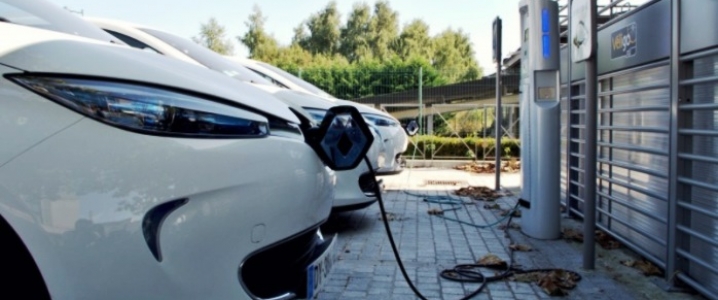When China first announced its plans to slap EV production quotas on local carmakers back in 2017, the news got a lot of coverage. The media placed emphasis on the fact that the country was already the largest EV market, and an EV quota of 10 percent would go a long way towards boosting global EV adoption, giving EV proponents one more thing to boast about.
Initially the quotas were scheduled to take effect this year, but the introduction of the quotas was postponed until 2019. With the quotas once again on the horizon, the fate of China’s EV production is poised for a change.
According to a Bloomberg analysis of the changes, EV sales in China will rise but not by a lot. Currently, Bloomberg New Energy Finance has calculated, EV sales in China represent just 3 percent of the total. By 2020, these will probably rise by one or two percentage points, which is not a lot in statistical terms, but is quite a few cars in absolute terms, given the size of the market. The reason is the rules for the quotas are complex rather than straightforward. Here’s how Bloomberg explains them:
“Vehicles are awarded credit scores depending on their green credentials, such as how far they go without needing a charge. The least eco-friendly NEV will receive a credit score of two, while the greenest will get a maximum credit of six. So, to meet the 2019 credit target of 10 percent, a carmaker producing 100,000 gasoline-based vehicles would need 10,000 credits. Those could be earned by manufacturing 2,000 cars with an NEV score each of five. If the automaker produced more than 2,000, it could sell the extra credits; fewer than 2,000, and it would need to buy credits.”
Besides opening up a potentially lucrative market similar to the carbon emissions one, the changes will boost the sales of companies that already make EVs, as common sense would suggest. It will also benefit foreign carmakers that have been vying for a larger presence on the Chinese market as long as they manufacture EVs that comply with the requirements set for EV credit awards. This could be tougher for some international majors who have mostly relied on gasoline and diesel cars for their Chinese sales, but if what these same carmakers are saying about their ambitious EV goals comes to pass—think VW and its planned 20+ EV lineup—then they should have no trouble securing a piece of the growing EV pie in the country.
Related: Oil Prices Rise As Saudis Cut Exports
Something else carmakers would need to consider, however, is the fact that Beijing has plans for EFV subsidies as well. As Jack Perkowski noted in a Forbes story from July, in 2017 alone the Chinese government spent US$7.7 billion in EV subsidies last year alone. The more EVs are made, the more it would have to spend on subsidies, so a wean-off is definitely in order. And Beijing is considering it, too: subsidies for what Beijing calls new energy vehicles, or NEVs, are to be phased out by 2021.
This puts carmakers in an interesting, if not challenging, position. They would have to come up with ways to make their EVs cheaper, and fast, to survive in the new no-subsidy environment. Some are, again, better prepared than others. Large Chinese carmakers, for example, who have been putting a lot of money and thought into EVs, will probably have the advantage over VW and Ford, at least initially. But international carmakers tend to have the means and money to pour into technology advancements that would improve their chances to compete with the locals. Whether they would succeed in making the best use of these resources is yet to be seen.
In any case, those that have hailed the change in Chinese EV legislation as the single biggest step forward to a cleaner-air future are right to do so. Earlier this year, as of April, Chinese car sales represented more than a third of all car sales globally. The more of these that are electric, the better, from the perspective of the air-breathing carbon-based life form humans are. Let’s just see if compliance with the groundbreaking regulation goes as smoothly as everyone hopes.
By Irina Slav for Oilprice.com
ADVERTISEMENT
More Top Reads From Oilprice.com:
- Aramco CEO: Expect IPO In 2021
- Permian Drillers Prepare To Go Into Overdrive In 2019
- What’s Behind China’s New Charm Offensive?



















Interesting to see what China is accomplishing through its strong central government. Nothing wrong with that -- it's the way they work. Engineers run China. They know that the country desperately needs less pollution.
Contrast China's approach with out own. We move forward guided by leadership from our Tech Industry. Meanwhile, our national government shrinks into regulatory shadows and openly promotes fossil fuel.
Fortunately, each country has its own solution for moving away from burning fossil fuel. We just need to do it.